Your kitchen cabinet holds several natural perfume fixatives that can extend your fragrance's staying power. Vanilla extract works as a stabilizer while adding warm, comforting notes. Apple cider vinegar balances pH levels to lock in scents, while glycerin creates an ideal environment for fragrance molecules. Baking soda neutralizes unwanted odors, and though salt has historical significance, it's best avoided. Discover how these everyday ingredients can transform your perfume game.
Baking Soda: The Odor-Absorbing Perfume Base
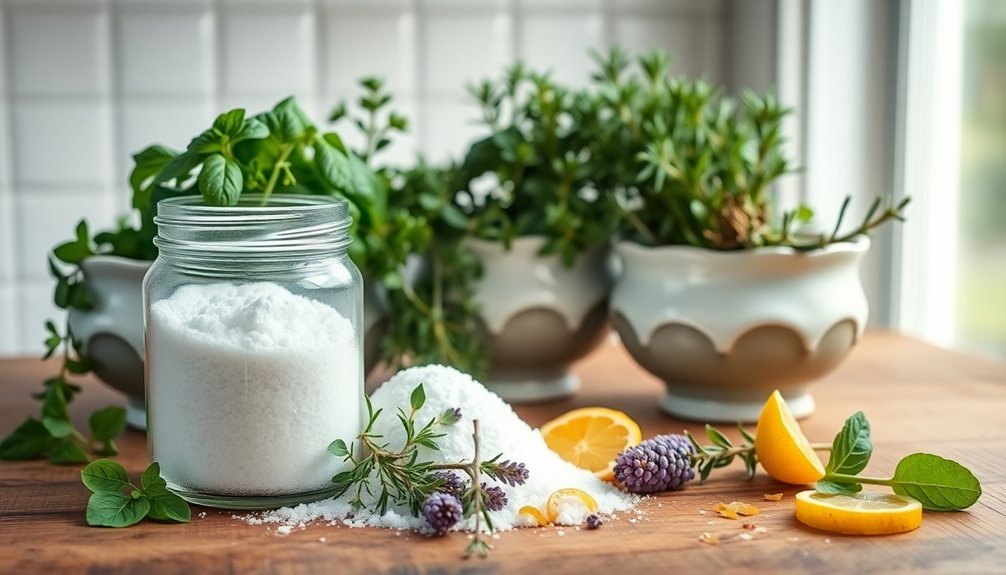
A humble box of baking soda holds surprising power in the world of fragrance neutralization. Unlike perfume fixatives that prolong scents, baking soda works to eliminate them by maintaining a stable pH balance of around 8.1. Unlike traditional aroma fixative compounds, baking soda doesn't enhance or preserve fragrances in any way.
You'll find it particularly effective when you need to neutralize unwanted fragrances on skin, fabric, or household surfaces.
To use baking soda effectively, simply mix it with a small amount of water to create a paste. Apply this mixture to the scented area and let it sit for a few minutes before rinsing.
You can also combine it with other neutralizing agents like vinegar or rubbing alcohol for enhanced results. While it won't help your perfume last longer, it's an excellent solution when you need to reset your olfactory canvas by eliminating persistent odors.
Vanilla Extract: Your Pantry's Natural Fixative
While baking soda excels at neutralizing scents, vanilla extract serves the opposite purpose as nature's premier fixative agent.
You'll find this kitchen staple can lock in your favorite fragrances, making them last markedly longer on your skin and clothes. Its odor compound vanillin contributes to its remarkable stabilizing abilities.
If you're crafting your own scent blends, you'll appreciate vanilla extract's versatility. It pairs beautifully with gourmand notes like chocolate and coffee while effectively balancing stronger scents such as musk and oud.
You can use either pure vanilla absolute or synthetic vanillin, though natural versions offer more complex aromatic profiles.
Beyond its fixative properties, you'll benefit from vanilla's mood-enhancing qualities. It's known to create feelings of comfort and happiness, making it an excellent choice for both personal fragrances and home scents.
Apple Cider Vinegar: Ph-Balancing Scent Lock
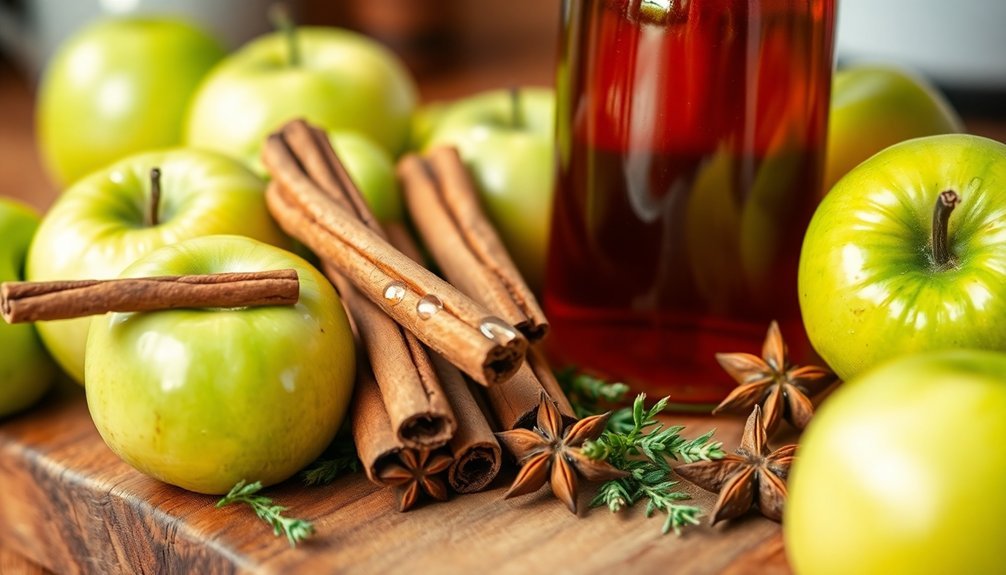
Beyond its reputation as a kitchen staple, apple cider vinegar serves as a powerful pH-balancing agent in natural perfumery. With a pH range of 3 to 5, it can help lock in your favorite scents while maintaining skin compatibility.
You'll find that adding apple cider vinegar at a 2-5% concentration works effectively as a base for fragrance blends. While its strong, earthy aroma might initially seem challenging, you can easily mask it with essential oils. Regular application helps restore acidic balance to skin after using alkaline products.
The vinegar's antioxidant properties, derived from chlorogenic and gallic acids, help extend your perfume's shelf life.
Don't let its acidic nature worry you – when properly diluted, apple cider vinegar's gentle formulation makes it skin-friendly. Its mineral content, including calcium and magnesium, combined with natural alpha hydroxy acids, creates a balanced foundation for your DIY perfume creations.
Glycerin: Kitchen-Found Fragrance Stabilizer
Three powerful properties make glycerin an excellent fragrance stabilizer: its ability to dissolve aromatic compounds, its moisture-retaining capacity, and its natural preservative qualities.
You'll find this common kitchen ingredient particularly effective when you want to extend your perfume's longevity.
As a viscous liquid that's completely safe and odorless, glycerin works by creating an ideal environment for your fragrance molecules. It dissolves and carries the scent while maintaining consistent moisture levels that prevent premature evaporation.
You can easily mix it with your favorite perfume to improve its staying power and prevent separation of ingredients.
For best results, combine glycerin with other emollients to reduce greasiness and enhance the overall feel of your fragrance.
It's compatible with most cosmetic ingredients, making it a versatile stabilizer for your scent collection.
Salt: The Ancient Perfume Preservative
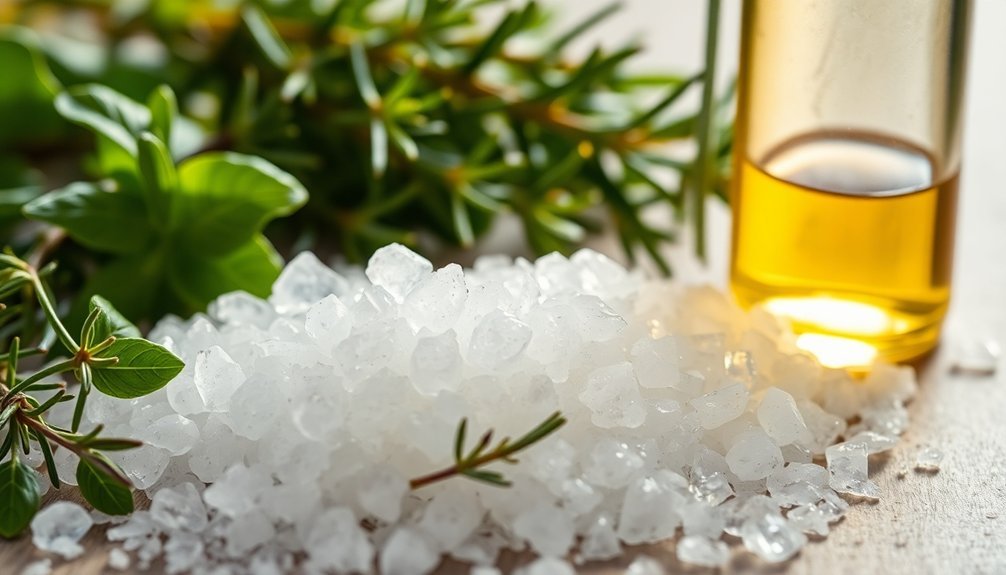
Unlike glycerin's proven effectiveness in perfumery, salt presents notable limitations as a fragrance preservative.
Despite its historical significance in food preservation, salt isn't suitable for perfume formulations due to its chemical properties and incompatibility with fragrance ingredients.
You'll want to avoid using salt in your perfumes for these essential reasons:
- Salt doesn't dissolve in non-polar solvents like essential oils, which can cause separation and disrupt your perfume's composition.
- It can interfere with the uniform distribution of fragrance ingredients, leading to inconsistent scent performance.
- Adding salt may trigger skin irritation and safety concerns, making your perfume potentially harmful.
Instead of salt, you're better off using proper fragrance preservatives like Optiphen or Euxyl, which are specifically designed for cosmetic formulations and won't compromise your perfume's stability or safety.
Frequently Asked Questions
Can I Mix Different Kitchen Ingredients to Create a Stronger Perfume Lock?
You can mix carrier oils like coconut or sweet almond with natural preservatives. Add some witch hazel and a splash of vodka to create a more effective perfume base that'll lock scents longer.
How Long Do Kitchen-Based Perfume Fixatives Last Compared to Commercial Ones?
You'll find kitchen-based fixatives typically last 10-20% longer than unfixed perfumes, while commercial fixatives can extend longevity more considerably. However, even commercial ones won't dramatically increase your fragrance's staying power.
Will These Kitchen Ingredients Affect the Original Scent of My Perfume?
Yes, kitchen ingredients will alter your perfume's original scent. They'll interact with your fragrance's notes, creating a new blend. You'll notice subtle changes, but most fixatives won't dramatically transform the core scent profile.
What's the Best Storage Method for Homemade Perfume Fixative Solutions?
Store your homemade fixative solutions in dark glass bottles with airtight lids. You'll want to keep them in a cool, dry cabinet away from sunlight. Don't forget to label and date each bottle.
Are Kitchen-Based Perfume Fixatives Safe for All Skin Types?
You shouldn't assume kitchen-based fixatives are safe for all skin types. They can cause allergic reactions or irritation. Always do a patch test first and consult a dermatologist if you have sensitive skin.
In Summary
You've now got five powerful perfume-locking ingredients right in your kitchen. Whether you choose baking soda's absorbing power, vanilla's natural fixative properties, apple cider vinegar's pH balance, glycerin's stabilizing effects, or salt's time-tested preservation, you'll find your fragrances lasting longer than ever. Try these simple solutions to make your favorite scents stick around, and you'll never need expensive perfume fixatives again.
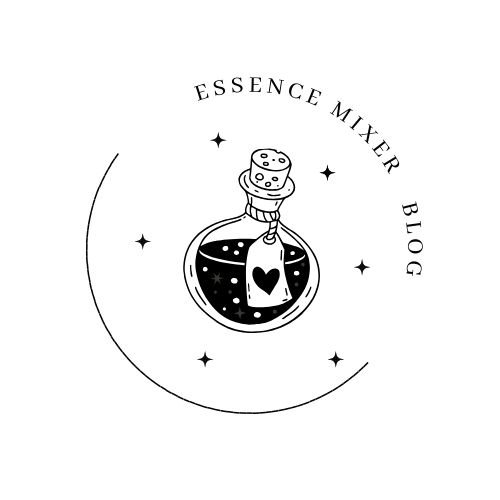
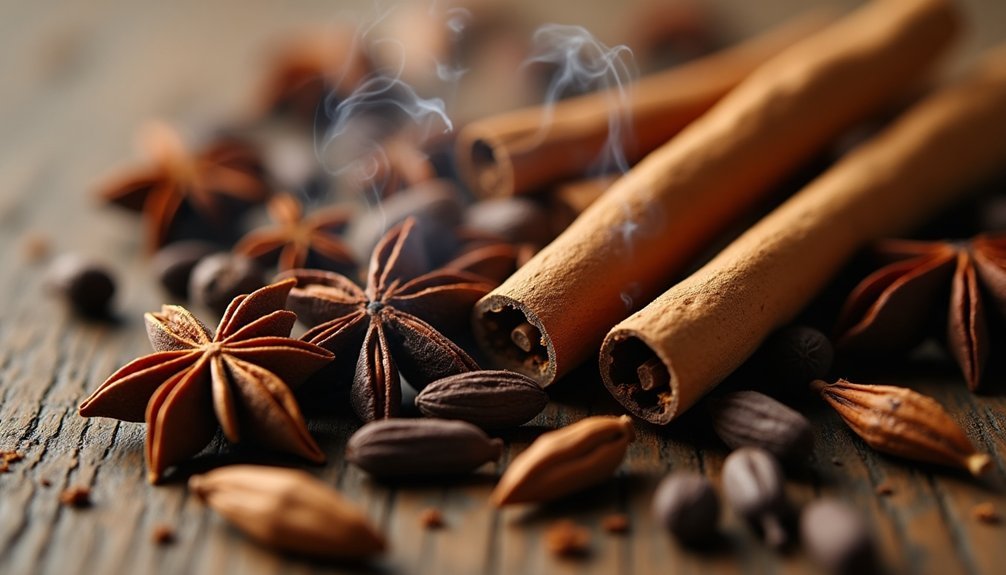
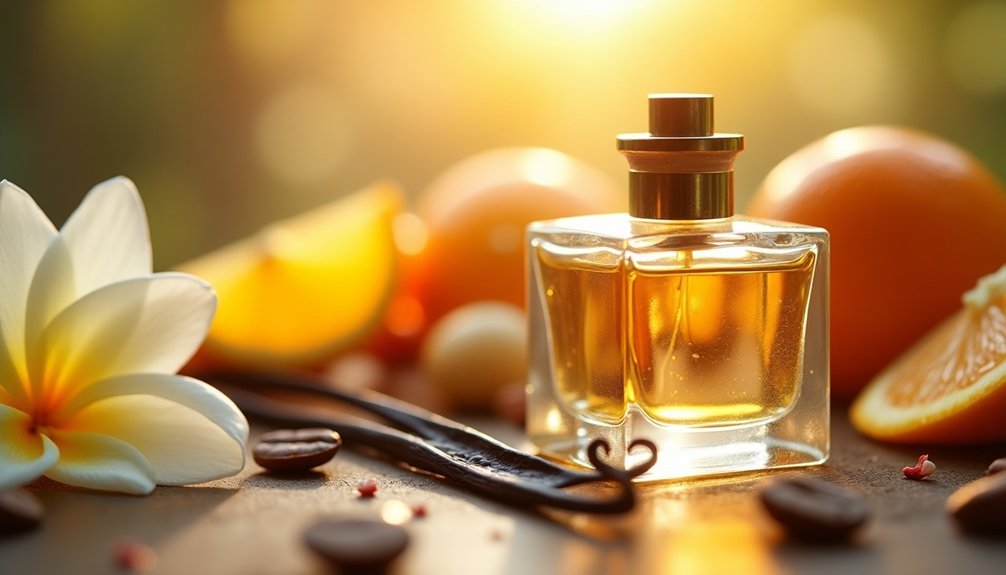
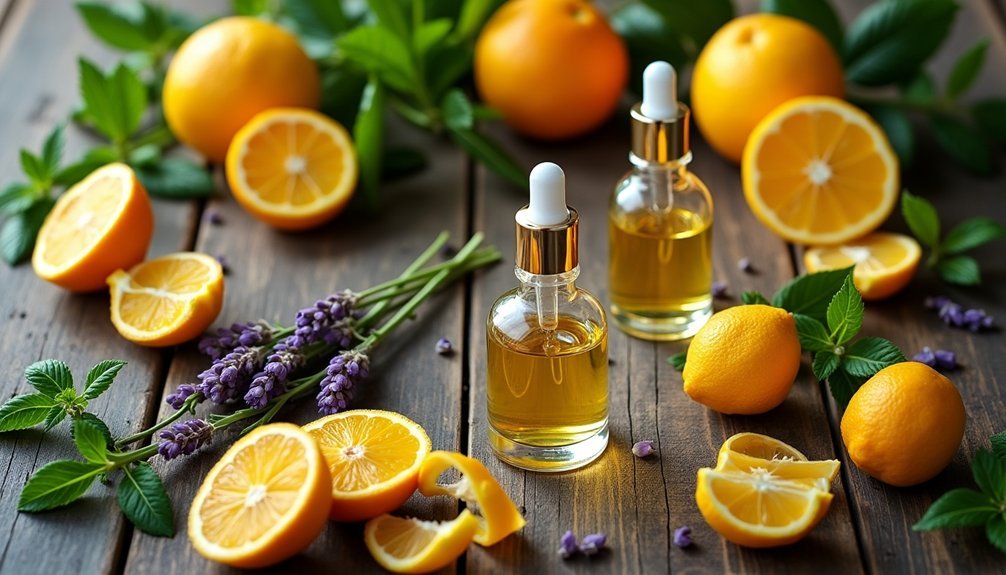
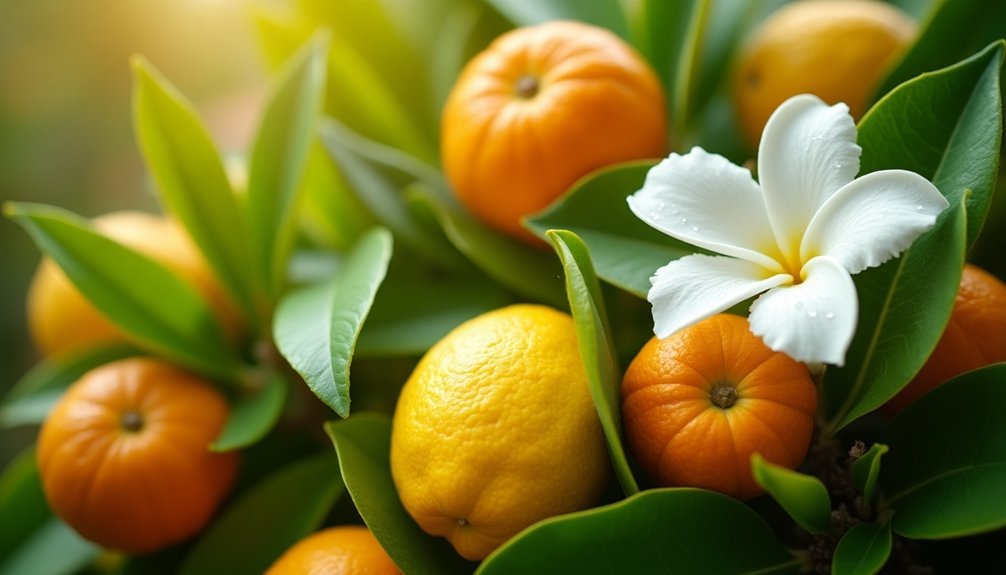
Leave a Reply